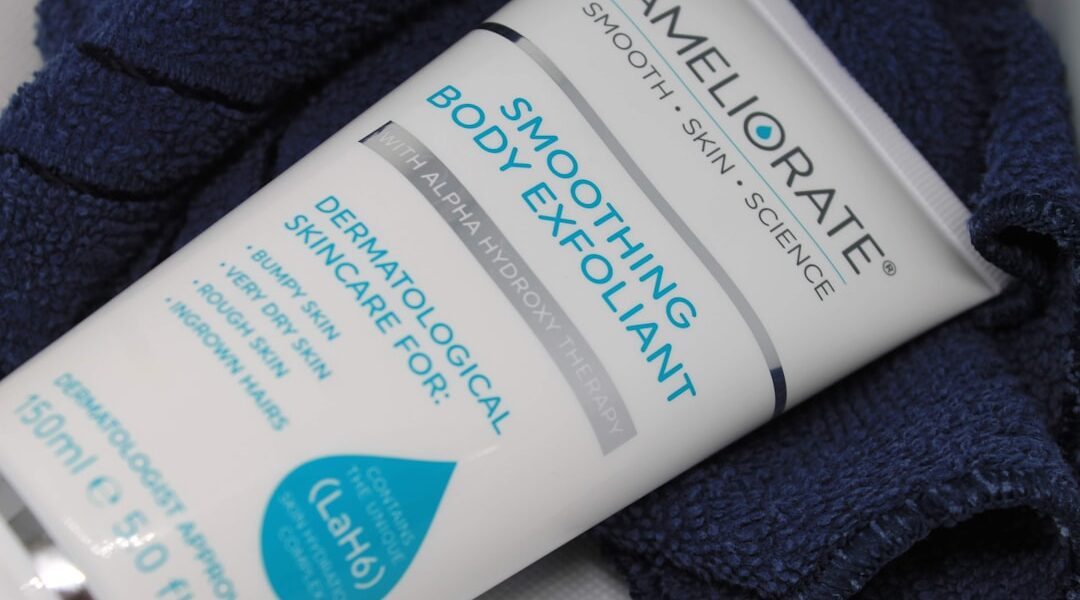Anti-aging products have gained popularity as people seek to maintain a youthful appearance and mitigate signs of aging. The science behind these products focuses on addressing various factors contributing to skin aging, including collagen and elastin breakdown, oxidative stress, and environmental damage. Retinol, a form of vitamin A, is a common ingredient in anti-aging products.
It stimulates collagen production and increases cell turnover, resulting in smoother skin. Hyaluronic acid is another key component, helping to hydrate the skin and improve elasticity. Antioxidants like vitamins C and E are frequently included to neutralize free radicals and protect against environmental damage.
Peptides are often incorporated to stimulate collagen production and enhance skin texture. Recent research has highlighted the role of inflammation in the aging process. This has led to the development of anti-aging products containing ingredients with anti-inflammatory properties, such as niacinamide and green tea extract.
The science behind anti-aging products is complex, involving a wide range of ingredients and formulations designed to target multiple aspects of skin aging.
Key Takeaways
- Anti-aging products work by targeting key factors that contribute to aging, such as collagen production, skin hydration, and cell turnover.
- Ingredients like retinoids, antioxidants, peptides, and hyaluronic acid are commonly found in anti-aging products and have been proven to have anti-aging benefits.
- When choosing anti-aging products, it’s important to consider your skin type and specific concerns, such as wrinkles, dark spots, or loss of firmness.
- Incorporating anti-aging products into your skincare routine can help improve the appearance of fine lines, wrinkles, and uneven skin tone, while also providing long-term benefits for skin health.
- Common misconceptions about anti-aging products include the belief that they are only for older individuals and that they can reverse the aging process completely.
Understanding the Ingredients in Anti-aging Products
When it comes to choosing the right anti-aging products for your skincare routine, understanding the ingredients is key. There are a wide variety of ingredients commonly found in anti-aging products, each with its own unique benefits and properties. Retinoids, for example, are a class of ingredients derived from vitamin A that are known for their ability to stimulate collagen production and increase cell turnover, resulting in smoother, more youthful-looking skin.
However, retinoids can be irritating to some individuals, so it’s important to start with a lower concentration and gradually increase as tolerated. Hyaluronic acid is another important ingredient to look for in anti-aging products, as it helps to hydrate the skin and improve its elasticity. This ingredient is particularly beneficial for those with dry or dehydrated skin, as it can help to plump up fine lines and wrinkles.
Antioxidants such as vitamin C and E are also commonly found in anti-aging products, as they help to neutralize free radicals and protect the skin from environmental damage. Peptides are another key ingredient to look for, as they have been shown to stimulate collagen production and improve the overall texture of the skin. In recent years, there has been a growing focus on the role of inflammation in the aging process, leading to the development of anti-aging products that target this specific issue.
Ingredients such as niacinamide and green tea extract have been shown to have anti-inflammatory properties, making them valuable additions to anti-aging skincare routines. Overall, understanding the ingredients in anti-aging products is essential for choosing the right products for your specific skincare needs.
How to Choose the Right Anti-aging Products for Your Skin Type

Choosing the right anti-aging products for your skin type can be a daunting task, given the wide variety of options available on the market. However, there are a few key factors to consider when selecting anti-aging products that will best suit your individual needs. First and foremost, it’s important to identify your specific skin type, whether it’s dry, oily, combination, or sensitive.
Different skin types have different needs when it comes to anti-aging products, so it’s important to choose products that are formulated specifically for your skin type. For those with dry or dehydrated skin, it’s important to look for anti-aging products that are rich in hydrating ingredients such as hyaluronic acid and ceramides. These ingredients can help to replenish moisture levels in the skin and improve its overall texture.
On the other hand, individuals with oily or acne-prone skin should look for lightweight, non-comedogenic formulas that won’t clog pores or exacerbate breakouts. Retinoids and salicylic acid are particularly beneficial for oily or acne-prone skin, as they can help to unclog pores and reduce excess oil production. For those with sensitive skin, it’s important to choose anti-aging products that are free from potential irritants such as fragrances and dyes.
Look for gentle, soothing ingredients such as niacinamide and chamomile extract that can help to calm and protect sensitive skin. Additionally, it’s important to perform a patch test before incorporating any new anti-aging products into your routine to ensure that they won’t cause irritation or allergic reactions. By taking your specific skin type into consideration and choosing products formulated to address its unique needs, you can ensure that you’re selecting the right anti-aging products for your individual skincare concerns.
The Benefits of Incorporating Anti-aging Products into Your Skincare Routine
| Benefits of Anti-aging Products | Skincare Routine |
|---|---|
| Reduces fine lines and wrinkles | Apply anti-aging serum or cream daily |
| Improves skin elasticity | Use anti-aging moisturizer regularly |
| Increases collagen production | Incorporate anti-aging ingredients like retinol |
| Prevents premature aging | Protect skin with SPF during the day |
| Hydrates and nourishes the skin | Include anti-aging masks or treatments weekly |
Incorporating anti-aging products into your skincare routine can offer a wide range of benefits for your skin’s health and appearance. One of the primary benefits of using anti-aging products is their ability to target and address the various signs of aging, such as fine lines, wrinkles, and loss of firmness. Ingredients such as retinoids and peptides have been shown to stimulate collagen production and increase cell turnover, resulting in smoother, more youthful-looking skin.
Additionally, antioxidants such as vitamin C and E can help to neutralize free radicals and protect the skin from environmental damage, which can contribute to premature aging. Another key benefit of incorporating anti-aging products into your skincare routine is their ability to improve overall skin texture and tone. Hydrating ingredients such as hyaluronic acid can help to plump up fine lines and wrinkles, while exfoliating ingredients such as alpha hydroxy acids (AHAs) and beta hydroxy acids (BHAs) can help to smooth rough patches and improve skin radiance.
By addressing these concerns, anti-aging products can help to create a more even, youthful complexion. In addition to targeting specific signs of aging, many anti-aging products also offer preventative benefits by protecting the skin from future damage. Ingredients such as niacinamide and green tea extract have been shown to have anti-inflammatory properties, which can help to protect the skin from environmental stressors and reduce the risk of premature aging.
By incorporating these products into your skincare routine, you can not only address existing signs of aging but also help to prevent future damage, resulting in healthier, more youthful-looking skin over time.
Common Misconceptions about Anti-aging Products
There are several common misconceptions about anti-aging products that can lead to confusion and misinformation among consumers. One of the most prevalent misconceptions is that anti-aging products are only necessary for older individuals who are already experiencing visible signs of aging. In reality, it’s never too early to start incorporating anti-aging products into your skincare routine.
Many of the ingredients found in these products, such as antioxidants and peptides, offer preventative benefits that can help to protect the skin from future damage and maintain its youthful appearance over time. Another common misconception is that all anti-aging products are harsh or irritating to the skin. While some ingredients commonly found in anti-aging products, such as retinoids, can be irritating for some individuals, there are many gentle formulations available that are suitable for even sensitive skin types.
It’s important to choose products that are formulated specifically for your individual needs and perform a patch test before incorporating any new products into your routine. Additionally, there is a misconception that expensive anti-aging products are always more effective than their more affordable counterparts. While some high-end skincare brands may offer innovative formulations and luxurious textures, there are many affordable options available that contain effective anti-aging ingredients.
It’s important to focus on the specific ingredients and formulations that will best address your individual skincare concerns rather than solely relying on price as an indicator of effectiveness.
Tips for Maximizing the Effectiveness of Anti-aging Products

In order to maximize the effectiveness of your anti-aging products, there are several key tips to keep in mind when incorporating them into your skincare routine. First and foremost, it’s important to be consistent with your use of anti-aging products in order to see results. Many anti-aging ingredients require regular use over an extended period of time in order to produce visible improvements in the skin’s appearance.
Establishing a consistent skincare routine that includes your chosen anti-aging products can help you achieve optimal results. Another important tip for maximizing the effectiveness of anti-aging products is to layer them correctly within your skincare routine. As a general rule of thumb, it’s best to apply products with lighter consistencies first (such as serums) followed by heavier formulations (such as creams or oils).
This allows each product to effectively penetrate the skin and deliver its unique benefits without interference from other layers. In addition to being consistent with your use of anti-aging products and layering them correctly within your routine, it’s also important to protect your skin from environmental damage by using sunscreen daily. UV exposure is one of the primary contributors to premature aging, so incorporating a broad-spectrum sunscreen into your skincare routine is essential for maintaining youthful-looking skin over time.
By following these tips and being mindful of how you incorporate anti-aging products into your routine, you can maximize their effectiveness and achieve visible improvements in your skin’s appearance.
The Future of Anti-aging Products: What to Expect
As technology continues to advance and our understanding of skincare evolves, the future of anti-aging products holds great promise for innovative new formulations and treatments. One area of focus in the development of future anti-aging products is personalized skincare solutions tailored to individual genetic factors and lifestyle habits. This approach takes into account each person’s unique genetic predispositions for aging as well as their specific environmental exposures in order to create customized skincare regimens that address their individual needs.
Another exciting development in the future of anti-aging products is the use of advanced delivery systems that enhance the penetration of active ingredients into the skin. Nanotechnology and microencapsulation are two examples of delivery systems that have shown promise in improving the efficacy of skincare formulations by ensuring that key ingredients reach their intended targets within the skin. These advancements have the potential to revolutionize the way we approach anti-aging skincare by maximizing the delivery of active ingredients for optimal results.
Furthermore, there is growing interest in harnessing the power of biotechnology for the development of innovative anti-aging treatments. This includes exploring the potential benefits of stem cell technology and gene therapy for rejuvenating aging skin at a cellular level. These cutting-edge approaches have the potential to redefine our understanding of aging and offer new possibilities for achieving youthful-looking skin.
In conclusion, the future of anti-aging products holds great promise for personalized skincare solutions tailored to individual genetic factors and lifestyle habits, advanced delivery systems that enhance ingredient penetration into the skin, and innovative biotechnological treatments that rejuvenate aging skin at a cellular level. As technology continues to advance and our understanding of skincare evolves, we can expect to see groundbreaking developments that redefine our approach to anti-aging skincare in the years ahead.
If you’re interested in learning more about the latest trends in anti-aging products, be sure to check out the article “The Best Anti-Aging Products of 2021” on Glamour Garrison. This article provides a comprehensive review of the top anti-aging products on the market, helping you make informed decisions about which products are right for you. Whether you’re looking for serums, creams, or treatments, this article has got you covered with all the latest and greatest options.
FAQs
What are anti-aging products?
Anti-aging products are skincare products designed to help reduce the signs of aging, such as wrinkles, fine lines, and age spots. These products often contain ingredients like retinoids, antioxidants, and peptides to help improve the appearance of the skin.
How do anti-aging products work?
Anti-aging products work in various ways, depending on their ingredients. For example, retinoids can help increase cell turnover and stimulate collagen production, while antioxidants can help protect the skin from damage caused by free radicals. Peptides may help improve the skin’s elasticity and firmness.
Are anti-aging products effective?
The effectiveness of anti-aging products can vary depending on the individual and the specific product used. Some people may see noticeable improvements in their skin’s appearance, while others may not experience significant changes. It’s important to use these products consistently and as directed to see potential benefits.
What are some common ingredients in anti-aging products?
Common ingredients in anti-aging products include retinoids (such as retinol and tretinoin), antioxidants (like vitamin C and E), hyaluronic acid, peptides, and alpha hydroxy acids (AHAs) like glycolic acid and lactic acid.
At what age should I start using anti-aging products?
There is no specific age to start using anti-aging products, as it varies from person to person. Some individuals may start using these products in their 20s as a preventive measure, while others may not begin until they notice visible signs of aging in their 30s or 40s.
Are there any potential side effects of using anti-aging products?
Some potential side effects of using anti-aging products may include skin irritation, redness, dryness, or increased sensitivity to the sun. It’s important to patch test new products and introduce them gradually into your skincare routine to minimize the risk of adverse reactions. Consulting with a dermatologist is also recommended.




